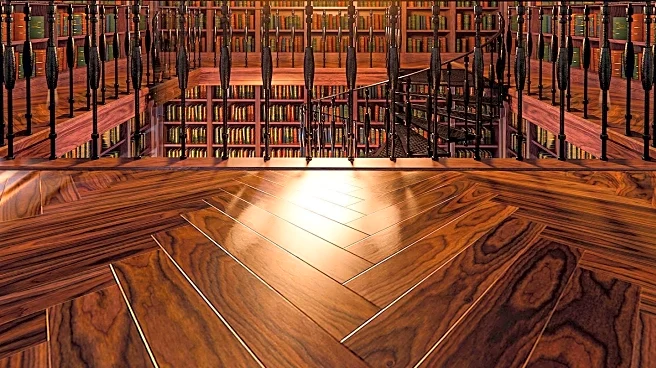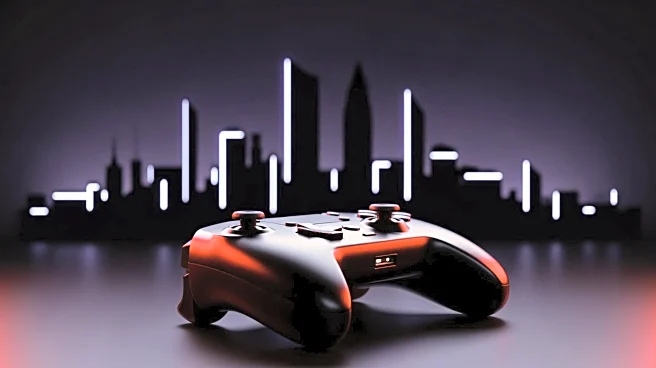What's Happening?
Prince Andrew, the Duke of York, is reportedly spending much of his time playing video games, particularly Call of Duty, at his residence in Royal Lodge, Windsor. According to a recent report, the 65-year-old
prince, who has stepped back from public duties, leads a life described as 'arrested adolescence.' His daily routine involves waking up late, watching television, and playing video games in a large sitting room with a giant screen. The report highlights his limited social interactions, with his life largely confined to the estate, except for occasional rides and shooting activities. The prince's social life is expected to improve with the upcoming pheasant shooting season. Despite living in a 30-bedroom mansion, Andrew's life is characterized by solitude and a lack of engagement in public or ceremonial roles.
Why It's Important?
The current lifestyle of Prince Andrew underscores the broader implications of his withdrawal from public life following controversies and legal challenges. His isolation and lack of public engagement reflect the ongoing consequences of his diminished role within the royal family. This situation highlights the challenges faced by public figures who retreat from their duties, raising questions about their future contributions and relevance. The report also touches on the financial aspects of his residence, noting that he has not paid rent on the Royal Lodge for over two decades, which could spark discussions about the financial arrangements and privileges of royal family members. The prince's situation may influence public perceptions of the monarchy and its members' roles and responsibilities.
What's Next?
As the pheasant shooting season approaches, Prince Andrew's social interactions are expected to increase, potentially offering him a temporary reprieve from his current routine. However, the long-term implications of his withdrawal from public duties remain uncertain. The royal family and its advisors may need to address the public's perception of Andrew's role and contributions, especially in light of ongoing scrutiny. Additionally, discussions about the financial arrangements for royal residences may gain traction, prompting potential reviews or changes in policies. The prince's future involvement in any public or ceremonial roles remains a subject of speculation, with potential impacts on the royal family's image and public relations strategies.
Beyond the Headlines
The report on Prince Andrew's lifestyle at Royal Lodge sheds light on the personal and psychological impacts of public scrutiny and withdrawal from active roles. His situation raises questions about the support systems available to individuals in similar positions, particularly those who have faced public controversies. The narrative of a 'lonely and bored' prince may resonate with broader societal themes of isolation and mental health, especially among those who experience significant lifestyle changes. This development also invites discussions about the ethical responsibilities of public figures and the balance between personal privacy and public accountability.









